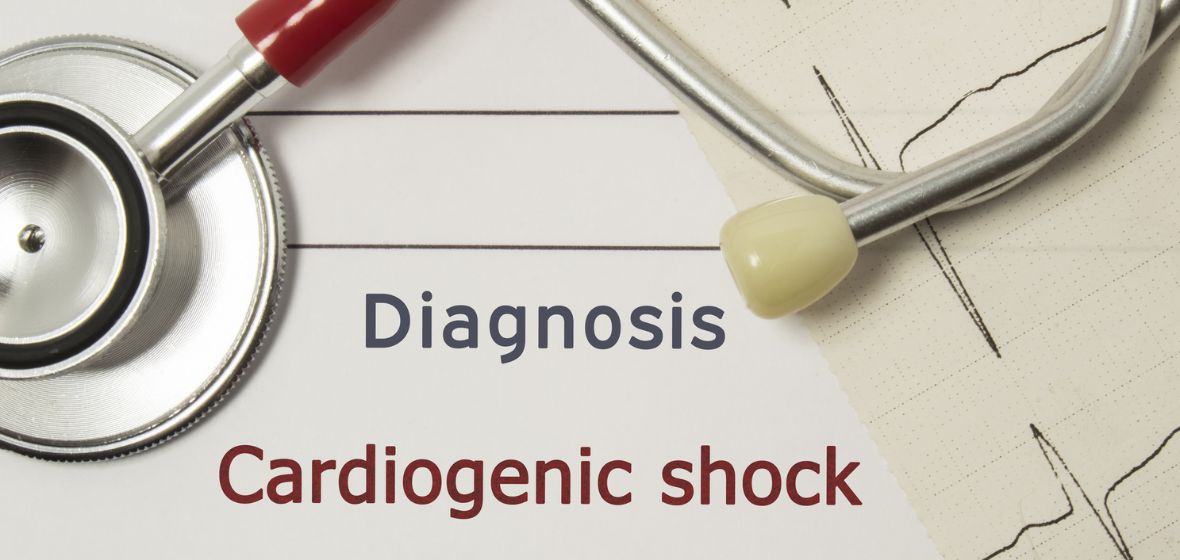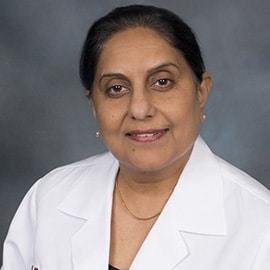
Definition: It is a cardiac disorder characterized by a low cardiac output state of circulatory failure that results in end-organ hypoperfusion and tissue hypoxia. Cardiogenic shock (CS) is a life-threatening emergency with 50% mortality (chance of death). The heart fails to pump blood to vital organs which shut down. More than 50,000 cases of cardiogenic shock are diagnosed each year in the U.S.
Medical conditions that can increase the risk of CS include:
- Acute heart attack
- Acute decompensation of chronic heart failure
- Heart failure due to viral infection of the heart
Stages of Cardiogenic Shock from “A to E”
Classification by Society of cardiovascular angiography and interventions (SCAI) include:
- Stage A: Patient who is “at risk” for CS but is not experiencing signs or symptoms of CS. Example: Pts with STEMI, NSTEMI, acute heart failure. Warm and perfused. Normal CI. No signs of hypoperfusion
- Stage B: “beginning” shock or compensated shock. Pt. volume overloaded, tachycardic, and/or hypotensive but without evidence of hypoperfusion on laboratory studies or exam.
- Stage C is “classic” CS. “Cold and Wet.” Pt. with evidence of hypoperfusion. Invasive hemodynamics demonstrate the classic depressed cardiac index associated with CS.
- Stage D is “deteriorating”: Stage C plus failure of initial interventions in restoring adequate perfusion in 30 minutes despite escalation in IV therapies or mechanical circulatory support
- Stage E is “extremis”: Patient is highly unstable with circulatory collapse and/or refractory cardiac arrest with ongoing CPR. They are being supported by multiple acute interventions including MC
Treatment options include immediate restoration of blood flow to reverse or prevent further damage. Restoration of blood flow is through reperfusion of coronaries if needed, followed by support using mechanical devices acting as a pump or sometimes just medical management with IV infusions.
Two of the main mechanical devices charged with acting as a pump are:
- Impella: a left ventricular assist device with a miniature pump within a catheter attached to an electric pump. Placed in the left ventricle, it works in parallel with the heart by aspirating blood from the heart chamber and pumping it throughout the body. The catheter can be placed percutaneously through the groin in an emergency or by a cut down via the axillary artery. It can deliver 2.5 to 5.5 liters of blood per minute.
- Extracorporeal Membrane Oxygenation (ECMO): is an extracorporeal life-saving machine that temporarily fills in for the heart and lungs when those organs are unable to fulfill their intended functions. It is a form of a heart-lung machine.
Despite multiple innovations, a success recognized in reducing mortality is through a multidisciplinary team approach. The team is made up of three heart experts trained in advanced heart failure.
- Advanced heart failure cardiologist
- Heart failure cardiothoracic surgeon
- Interventional cardiologist
- Cardiovascular surgical intensivist
As soon as a diagnosis of shock is made, the multidisciplinary team is activated. Members get on a conference call, discuss, and reach a combined decision through shared knowledge and expertise. The cardiac anesthesiologist joins the team for surgical implantation. UofL Health is the first in Kentucky with a cardiogenic shock team. Managing cardiogenic shock cases through a specialized team of heart care experts has been shown to reduce mortality from acute heart failure and improve survival by 71%.
The Cardiogenic Shock program at UofL Health is co-chaired by Aneeta Bhatia, M.D., MBA, and Kandis Adkins, M.D. To learn more, visit UofLHealth.org or call 502-588-7600 today.










